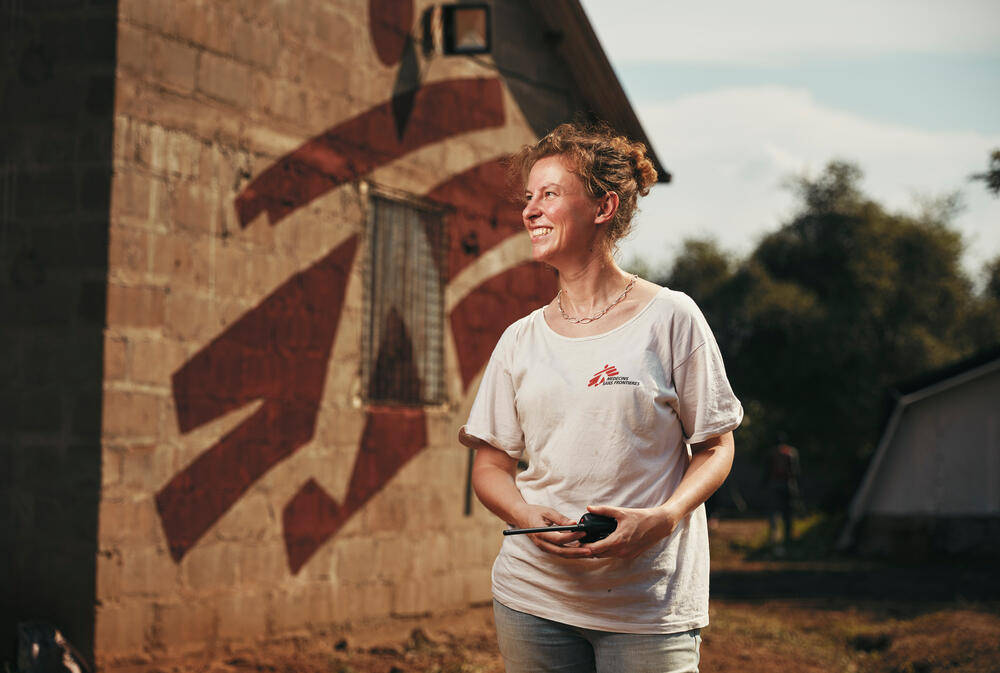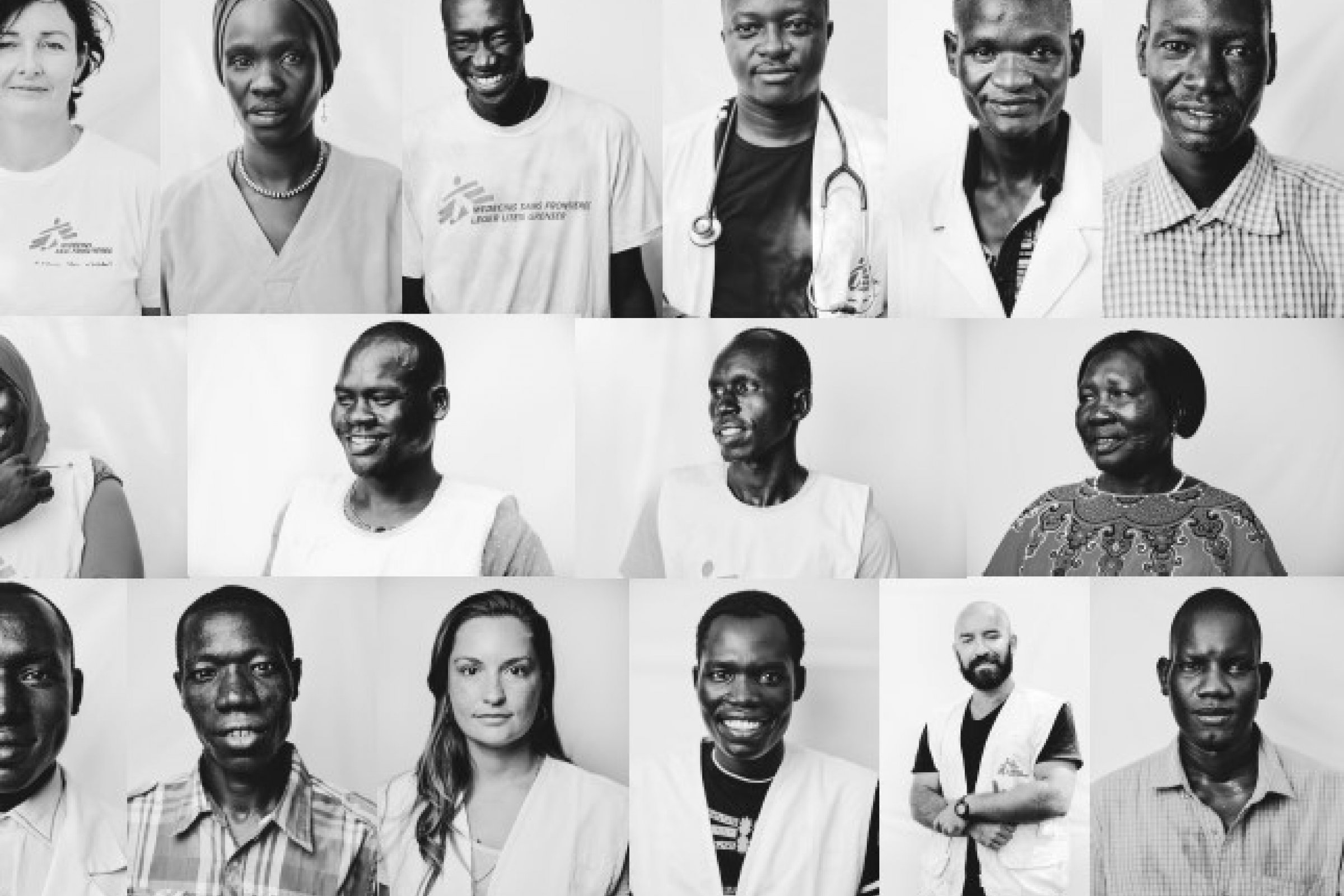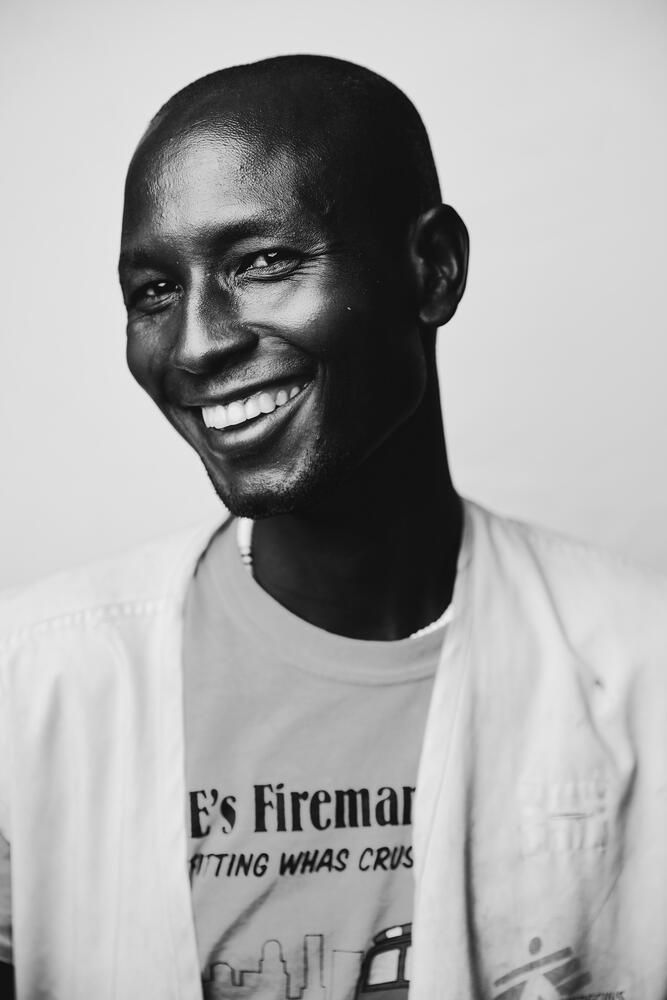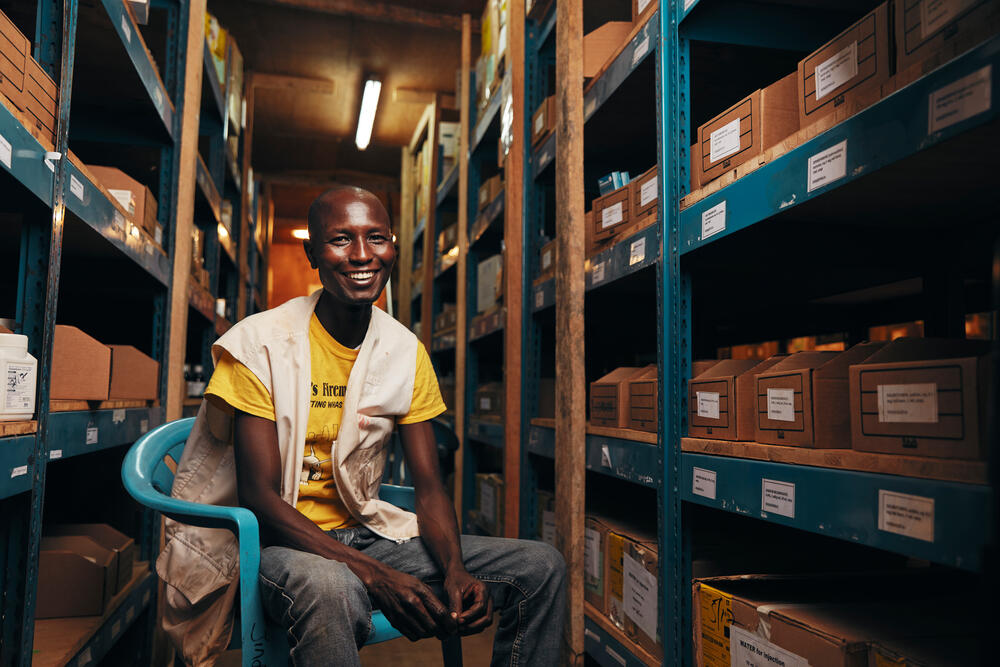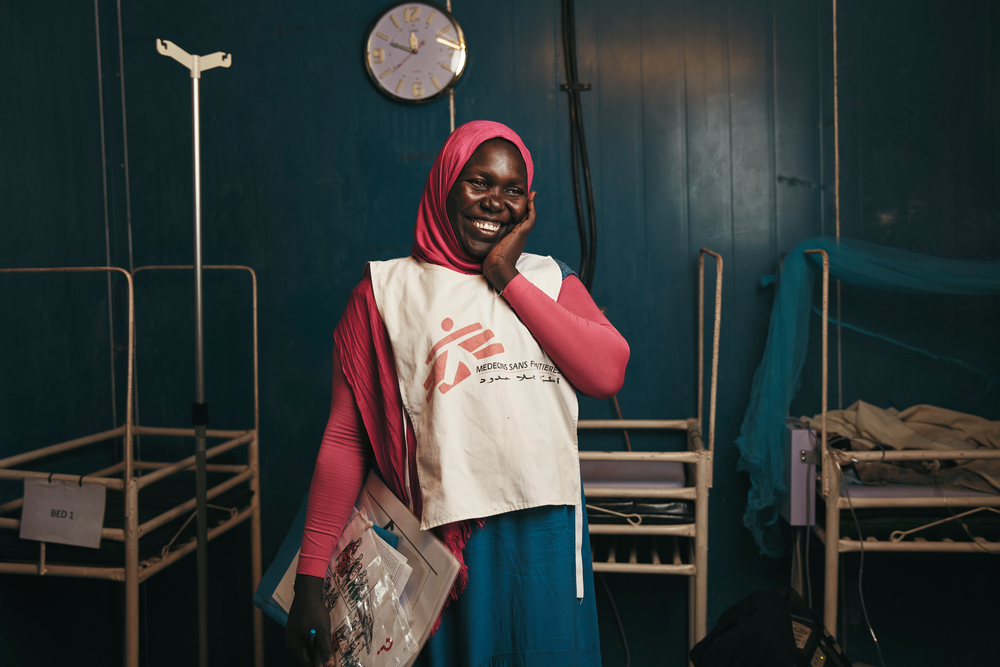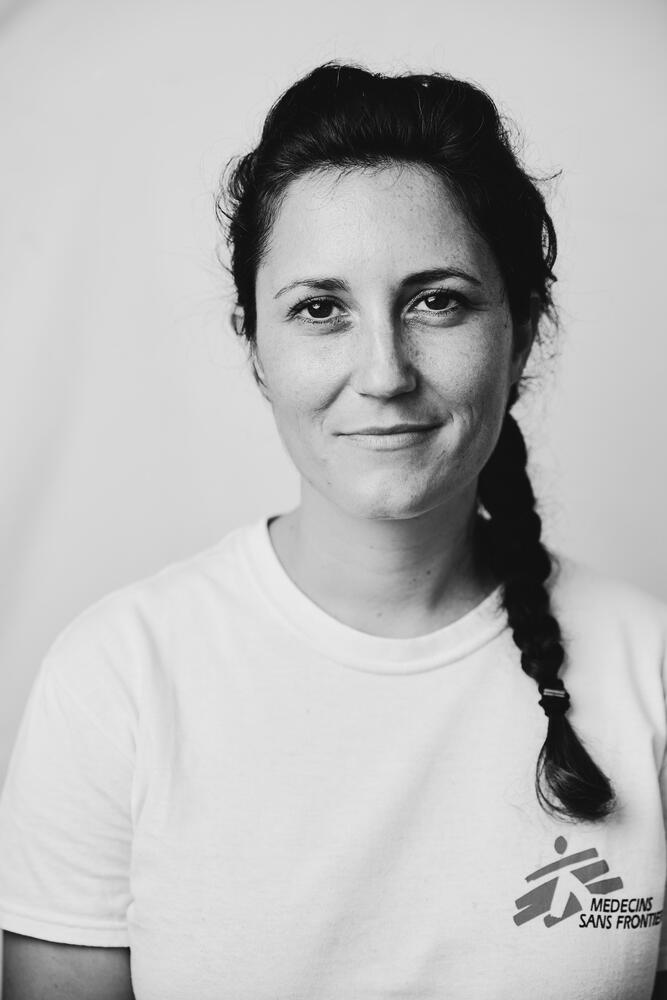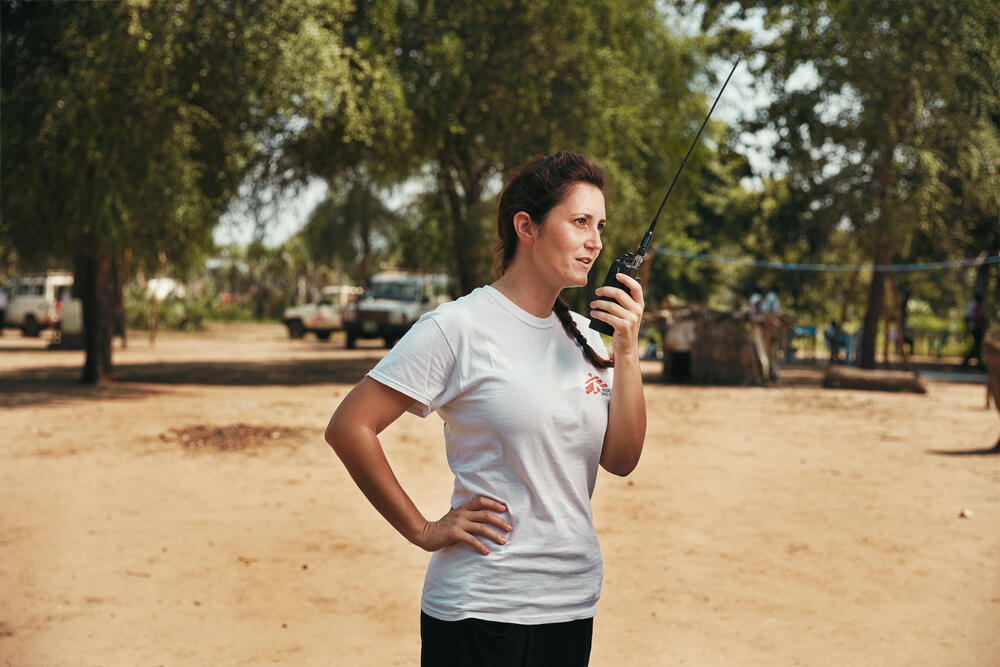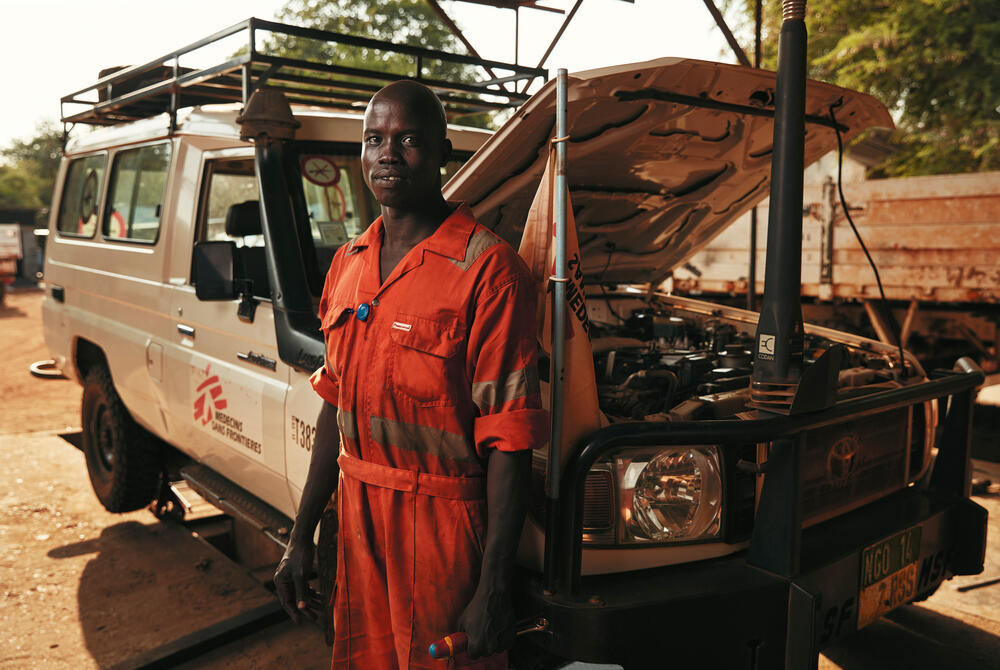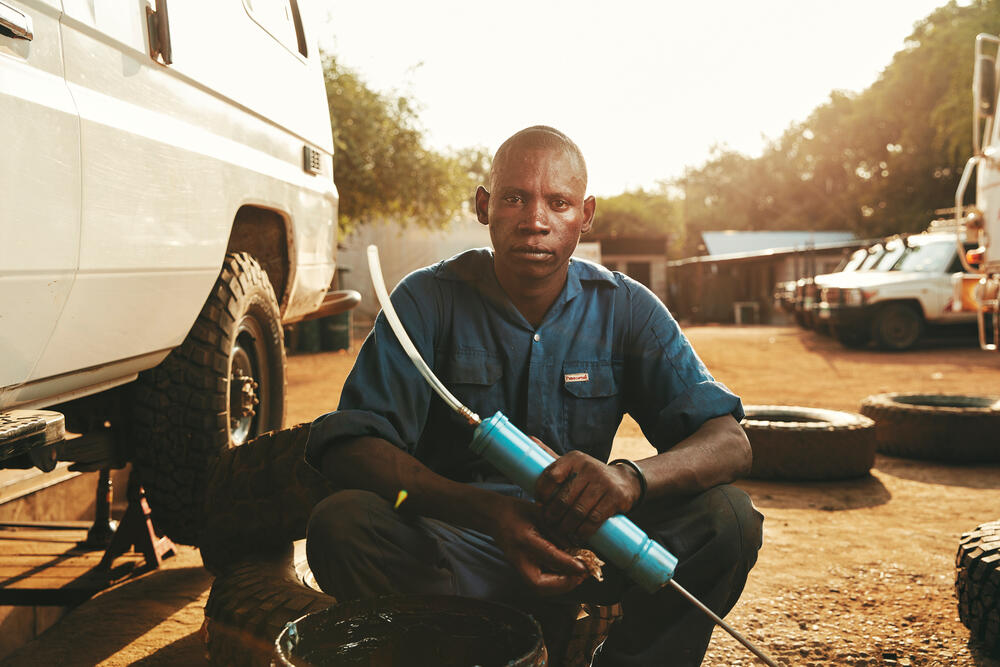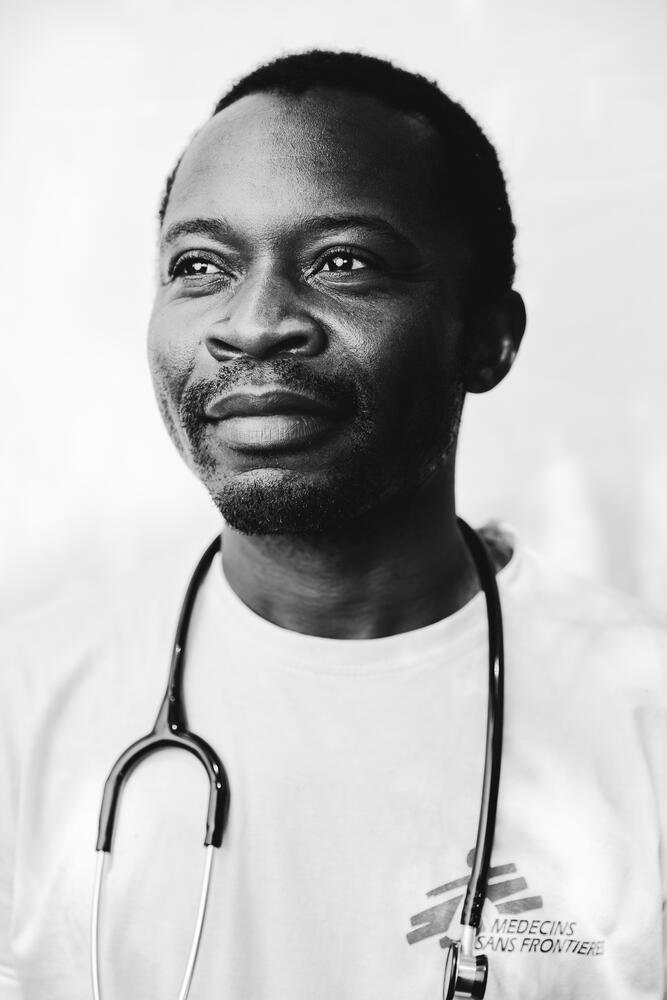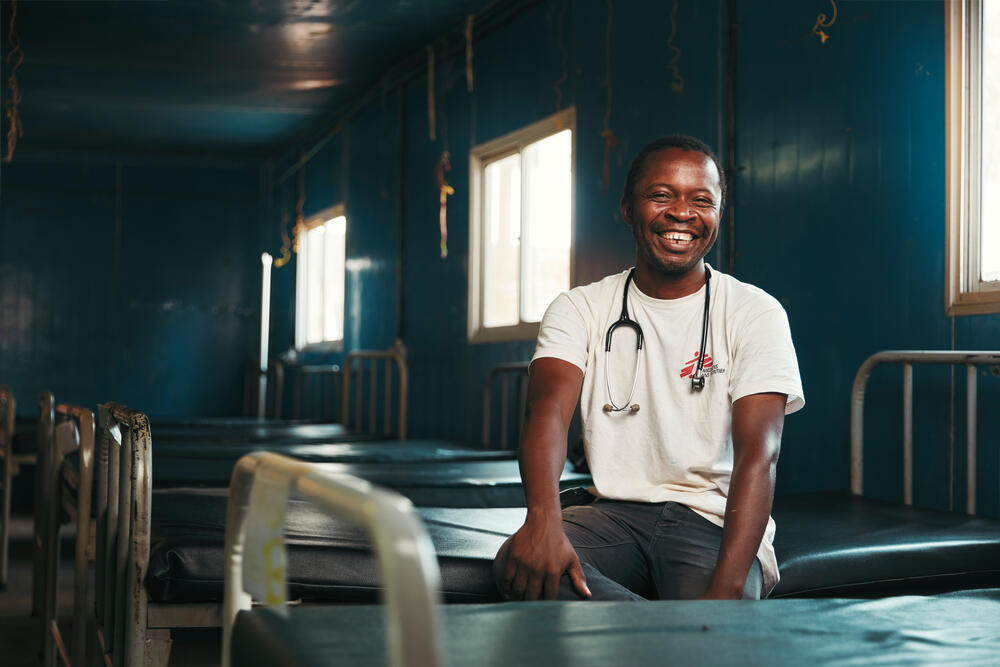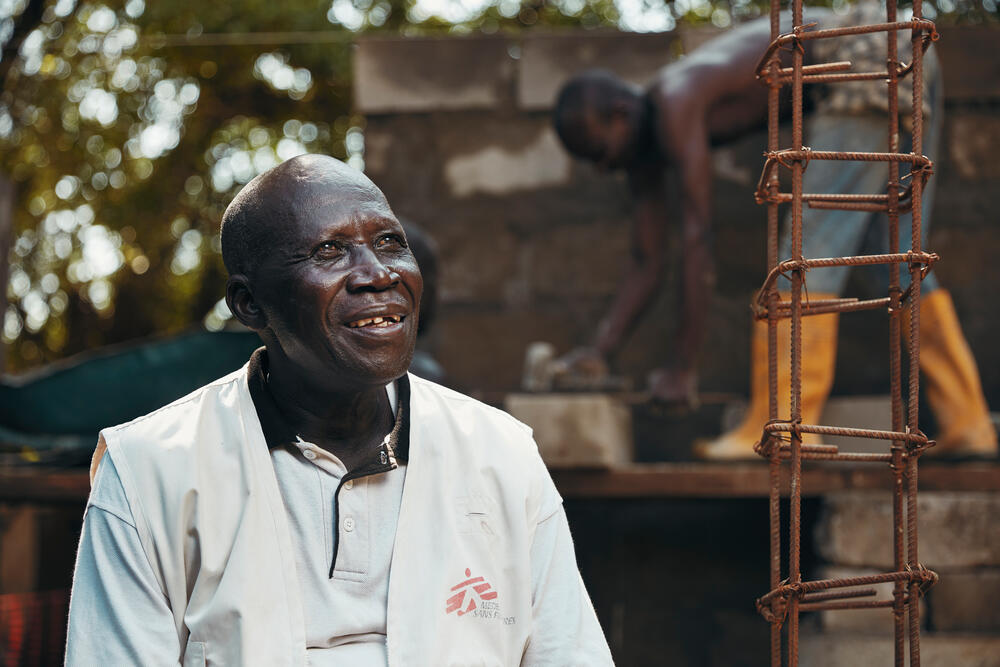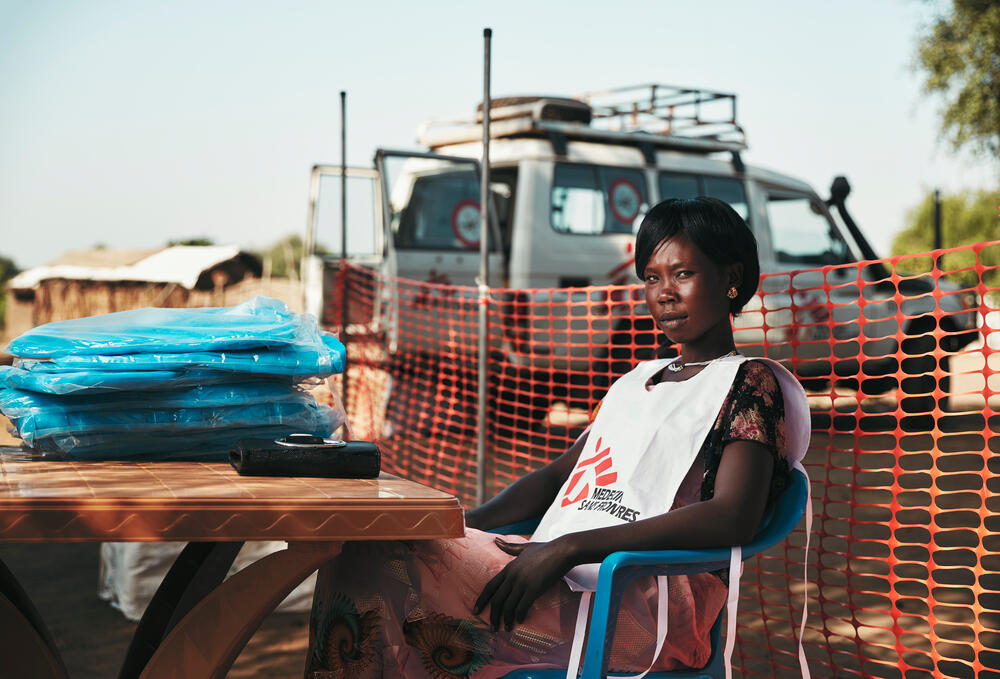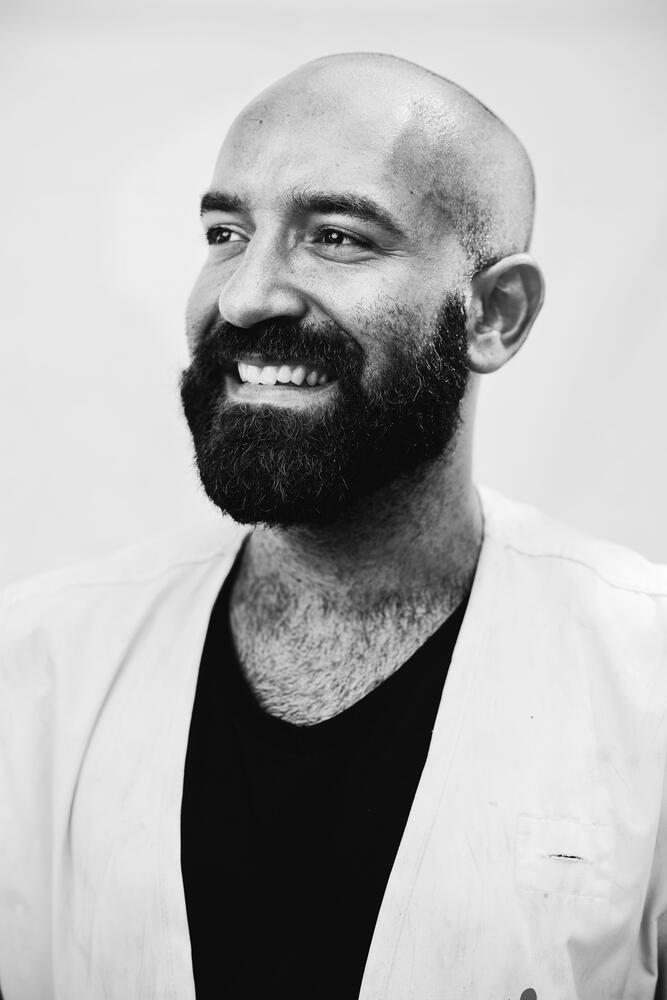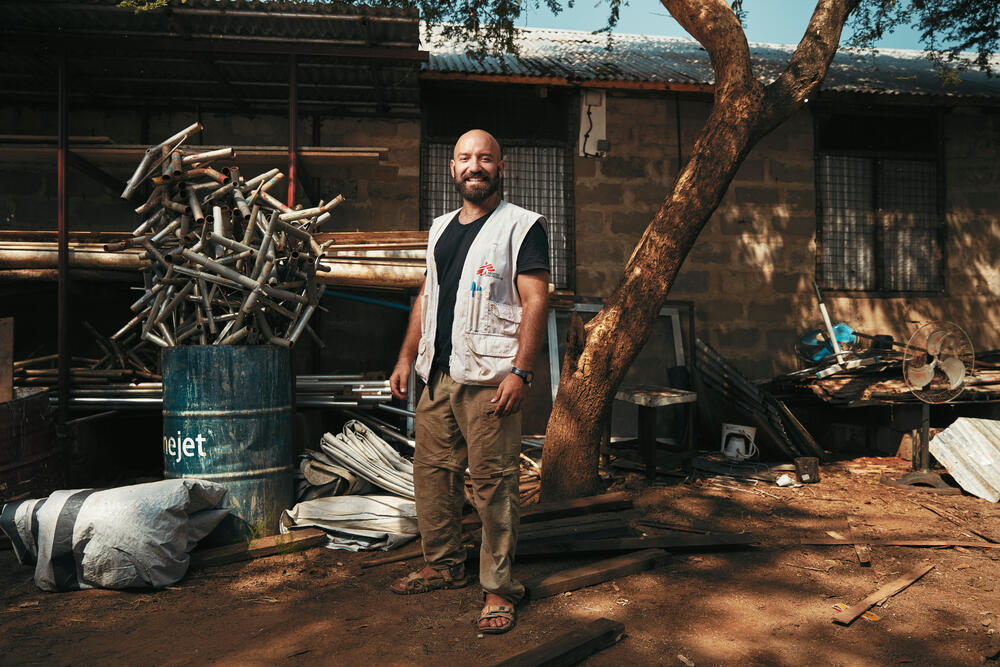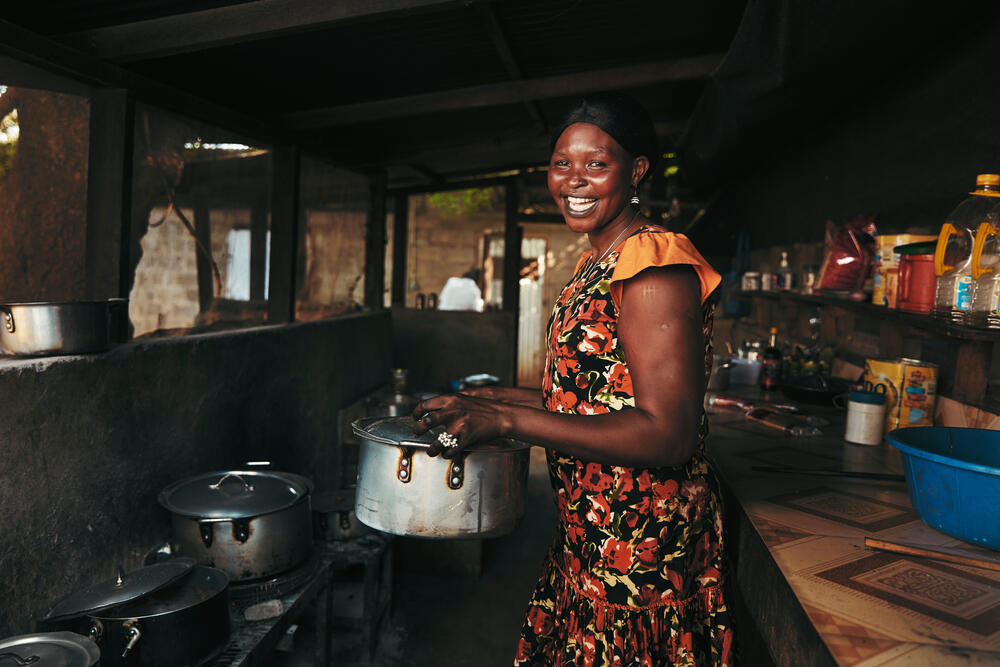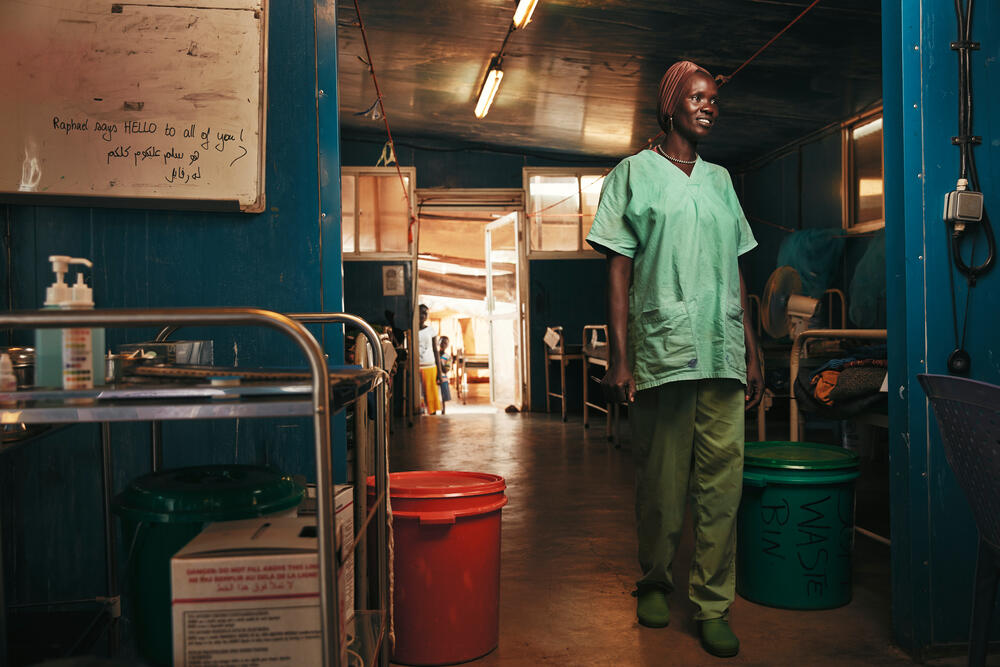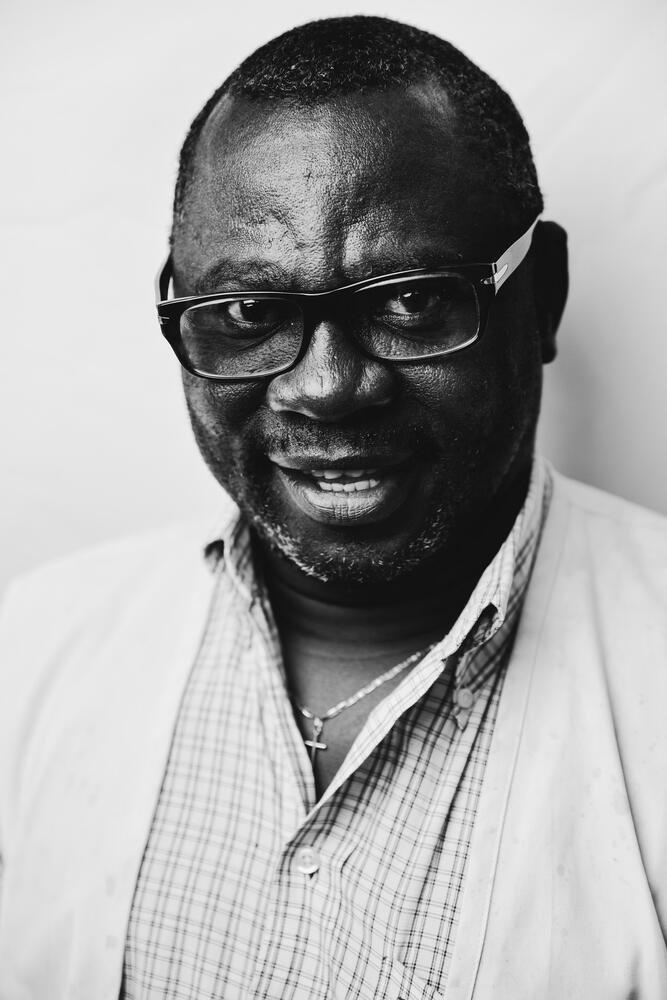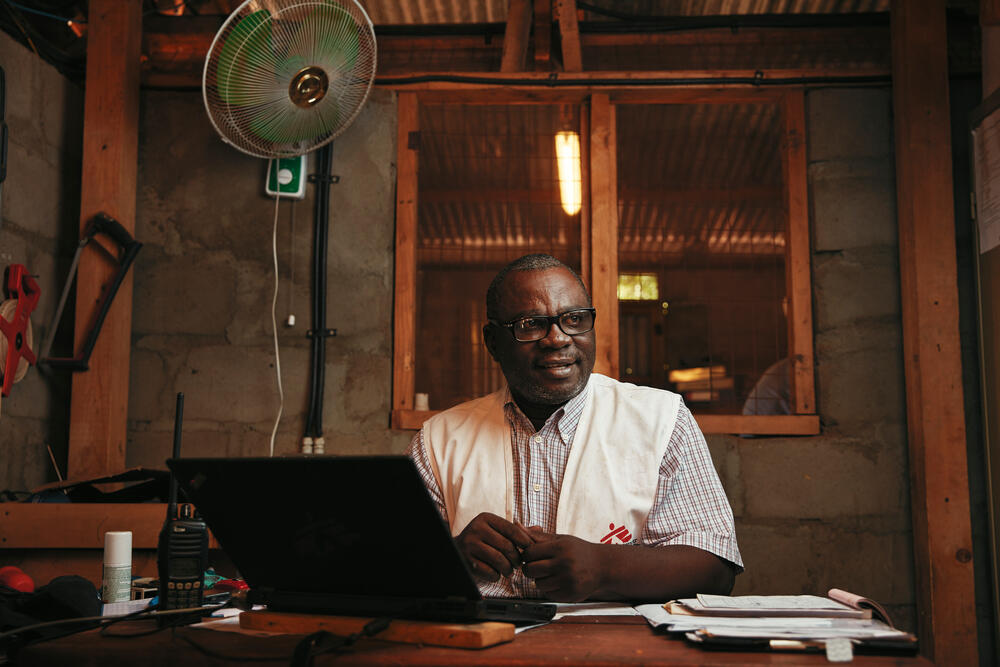South Sudan: Portraits of a project
Award-winning photographer Tom Barnes is probably best known for his stunning portraiture for some of the world’s most high profile papers and magazines.
Occasionally, Tom's work leads him to photograph inspirational figures, from British Paralympians to Lifeboat crews.
But, until November 2016, Tom's work had rarely taken him beyond the UK or US.
“I volunteered to shoot for MSF because I wanted to find a way to support the important work they do saving lives in some of the world’s most inhospitable places,” says Tom.
Tom travelled to Doro, in northeast South Sudan, to meet and photograph the MSF team whose job is to provide lifesaving care to more than 50,000 Sudanese refugees.
“Of course I knew it would take me out of my everyday professional comfort zone, but what I was not prepared for was the warmth, spirit and bravery of the individuals I met.
“I photographed as many of the staff as I could – doctors, nurses, pharmacists, logisticians, security guards, etc. – in the same style as I would shoot a commercial portrait: head-on, relaxed and proud.

Help us prepare for the next emergency
“These men and women deserve our attention for the sacrifices they have made to be here to care for others. Everyone has a story to tell but what struck me most was how these different characters, from many different countries, ethnicities and cultures, came together harmoniously in Doro, as MSF.”
In the week Tom was able to spend in Doro, he made 51 individual staff portraits. The following is a sample of this work, alongside entries from the diary he kept of his time visiting MSF staff in their hospital compound in Doro.
Day 1
7 am: wake up, start getting last-minute files sent and clothes packed. Shutting the office for two weeks to do a trip like this is stressful to say the least! I’m finally packed by 3 pm just as my taxi arrives to take me to the airport.
How the hell do you pack for a trip where most of the details are unknown, I’ve been told to keep my gear as light as possible - easier said than done but I think I managed it...
I guess I’ll find out?!
My flight is at 6.30 pm and leaving from Heathrow.
I’m the first on the plane and have that hope that I have a free row to myself.
I’m sat right at the back, the doors close, and that’s it: for the first time ever on a long haul flight I have a row to myself.
Sadly, it’s the most turbulent flight I’ve ever flown and we are all thrown around for over eight hours.
I land in Nairobi having not slept a wink and wait for my connecting flight to Juba, the capital of South Sudan.
I joined MSF in 2012 when I applied to work as a pharmacist. I’m from Sudan. In my home state of Blue Nile, there is fighting going on and we were not able to live there because the fighting was continuing and continuing. So we moved from the north to South Sudan; my wife, my children, my sister and my mother are all here with me. Maybe if there is a peace agreement then we can all go back to our land.
Day 2
My flight for Juba is called at 9 am, at this point I’ve been awake for 26 hours. I’m in a pretty knackered state and I have no idea what awaits me in Juba. I’m writing this the day after the flight and I cannot remember a single detail of it apart from walking off the flight to the ‘airport’.
I say airport as that’s generous, it’s a scrum really. I’m met by staff from MSF and officials who inspect my equipment and we are pushed through the airport. There is no baggage carousel.
I think I realise at this point that it isn’t going to be a normal trip. After finally clearing the airport I’m taken to the MSF office in Juba to have security briefings and meet the team members. I’ll say straight off a huge thanks go to each and every one of them for making this trip so much easier than it could have been.
I’ve still not slept. I have a large protective case with me that holds stands, lights and a background. This is 30kg and has to be shipped as cargo to the project ahead of my arrival.
I say goodbye and hope that I’ll see it again; without it, this whole project would be kaput! At 6 pm I have finished multiple briefings about protocols including what to do in case of a hand grenade attack, machine-gun fire, abduction, kidnapping and various other unpleasant sounding situations.
I’m also shown the areas I can and cannot go and told about the curfew: there is a restaurant we are able to visit opposite until 10 pm but only in a group and there is a very strict curfew of 7 pm for most other things.
I get ready for bed, have a cold shower and my toothbrush breaks. I collapse into bed, my aircon unit dies and I pass out, it’s still about 32 degrees centigrade. I have been awake for almost 43 hours.
Day 3
I am not allowed to take photographs in the country outside of MSF compounds.
Recently there have been frequent arrests of journalists and photographers.
I’m told one was even shot and killed a few months ago.
I’ve decided that I’m already out of my comfort zone and I definitely don’t need to be arrested by the army or the police, so I leave the cameras in my bags.
I have another couple of briefings, I change some money into local currency and buy a replacement toothbrush.
Ten members of the MSF Juba team and I go out for dinner in the restaurant opposite their offices for some good Ethiopian food and we retire at 9 pm.
At 10 pm I get to bed, my replacement toothbrush breaks.
My aircon is working!
I knew about MSF since I was young when I saw their advertisements in Italy. They are always where help is needed, in places where nobody else goes. South Sudan is challenging. It’s very sad to see a country that has been, for years and years, either in a civil war or on the edge of civil war. We are treating a lot of patients, both refugees from Sudan and the local South Sudanese population who need access to healthcare.
Day 4
I would say this is the official start of the trip, the reason I am here. My flight from Juba to Maban to visit the MSF project at Doro refugee camp is early, so I am up at 5 am. The refugee camp shelters people who are fleeing the conflict in the surrounding region.
I’m flying on a World Food Programme plane operated by the United Nations Humanitarian Air Service (UNHAS) to the refugee camp. South Sudan only has 250 kilometres of Tarmac covered roads, which makes access to most projects incredibly hard so the only way in and out is by air.
As we land in Maban it’s a refreshing sight and not at all scary to see wreckages of planes either side of the runway. Every time I turn a corner on this project something seems to surprise me again!
We land, I grab the bags and get in the MSF Land Cruiser to take us to the camp.
I’m with a few other MSF staff who have flown into the project and they know the way things work which is a real godsend!
I now have to wear a white MSF vest at all times, security is tight. Today we aren’t taking photographs but we’ve gone to the hospital in the middle of the camp to meet national staff and to see if anyone would like to sit for a portrait.
Everyone we ask says yes and it now looks like I might shoot a lot more people than expected this week!
While walking around the hospital I see a six-week-old child hooked up to oxygen, writhing in the heat. She is suffering from bronchitis and her condition is deteriorating. Around the corner I see my first case of advanced malnutrition, it is shocking to see and I find it very hard to take in, having been in the comfort of my London life just a few days ago.
We walk back to our compound, through the refugee camp and past some of the 50,000 people living here, it’s a real life-changing moment for me, seeing the conditions and the sheer volume of life in this camp.
Day 5
Today is our first day photographing in the hospital, this project was full of unknowns and I had no idea how many people would be willing to be photographed.
I had set a minimum target of 30 people. Every single person we asked said yes, which is fantastic.
Plenty of photographers have been to projects in the past but almost all of them focus on the international staff and the patients, not the local staff.
To put this imbalance into perspective - local staff (from Sudan and South Sudan) make up 90 percent of the MSF staff here.
I walk around the compound a bit more today and watch a mass casualty practice drill being held to see how the hospital would cope with multiple victims of, say, a car crash.
By lunch, I have photographed 12 people and by the end of the day 16!
When I finished university, I worked for three months for the Ministery of Health in the Central African Republic. Afterwards, I applied to MSF and I was accepted to go to the field. I started in CAR on the national staff and spent four years as a medical doctor with some surgery experience. And after this, I joined the international staff. I like this project in Doro, I see so many people every day and we try to do our best. I can see MSF is making a difference.
Day 6
I have lost track of time completely, funny how that sort of thing becomes quite irrelevant. I contemplate going for a run on the nearby airstrip, surrounded by armed UN blue helmet troops, but I decide that it’s too hot and get down to a spot of editing instead.
Journalists do visit the refugee camp in Doro from time to time, so I’m certainly not the first, but the staff and patients rarely, if ever, see the stories they write or the pictures they take.
Day 7
Today is a total blur. We start early and head to a mobile clinic where MSF is going into the host community to deal with spikes in malaria and malnutrition.
I meet my first sheik, the leader of the village, and discover their local market where Coca Cola tastes entirely different from the one back home.
After photographing at the mobile clinic we head to the main hospital to shoot there for a few hours before going back to photograph people at the base.
In total, I've taken 19 new portraits today. I’m exhausted!
Day 8
I found out today that my equipment definitely flies back tomorrow, which means I have fewer days shooting than I had originally thought. This is frustrating as word was starting to get around and many people are volunteering to be photographed.
Onwards and upwards, it’s the last day shooting so we head out on a mosquito net distribution (11,000 nets given out in four days) and we meet more of the local community.
The children here think I’m a ghost, they are laughing and pointing at my tattoos. As today is the last day I do as much as I can and manage to photograph another 19 people.
Back at base, I wrap the project, packing my gear up for shipping it tomorrow. All in all, I have made 51 portraits and interviews, well over the initial target of 30. Again, I’m exhausted, I have a shower and a huge flying cockroach lands on my face. I’m less than amused and desperately need sleep.
Day 9
The people here in base camp have photographers come through and stay from time to time but never see the pictures.
I wanted to change that.
There’s a meeting tomorrow of all the staff so I put together a slideshow with two images from each subject to be shown on a projector after the meeting is over.
After putting the slideshow together we head to the Bunj project and take some more candid photos of patients and staff.
It’s a very different setup to Doro clinic, housed in a Ministry of Health building.
I stop in the market on the way back to buy a soft drink before heading back to the MSF base to start preparations for my departure tomorrow.
This has been my first assignment for MSF; six months in South Sudan. Previously I was working as a consultant in an electrical company in Brazil. I love working for MSF, my job is very different now. As a logistician, I see everything that goes into a project, the diverse people and skills that make up the project. South Sudan is a complex context – war, displaced people, disease – it's good to see that we can help a lot by being here.
Day 10
My final full day in Doro, I’ll miss the people I have met. They have all been fantastic and have been incredibly warm and welcoming. There are some things I won't miss but I’m not going to moan, the facilities we have here in base camp are incredibly luxurious compared to the conditions in which the refugees live.
That said, (my back and) I will be glad of my bed at home! I head to Doro clinic to get some final photos of the project and meet more of the staff who all want their picture taken. It's rather frustrating that my main gear had to go back so early. After the hospital, I head back to base camp and photograph a few more bits around there and at 6 pm everyone settles down for the meeting of all the staff.
After discussing matters of the project for an hour we all head inside – I give a ropey speech and we start the slideshow. The reaction is fantastic – whoops, cheers and rounds of applause – everyone seems to like it. What a relief, I’m so pleased! I miss dinner as I was busy talking and taking photos so I dine on a jar of peanut butter.
On my way back to my tukul I get chased by a cat, attacked by a frog and almost eaten alive by a huge lizard. It’s definitely time to be heading home, I think, as I bed down for my last night in Doro.
Day 11
There’s a massive bang at 6 am and my fan stops working. That’s the loudest power cut yet. The electrics have somehow fried themselves in my humble tukul.
It’s really hot and I’m just about to start a nightmare 72 hours of travelling to get back to London. As I’m awake in bed I hear something large crawling in the roof. It’s either a rat or a snake.
I try to fall back to sleep but soon give up and get up to start packing to leave. I have a 20kg baggage allowance on the UNHAS flight, on the way out I was 10kg over and they let me through but today I have to lose that extra weight as I’m told they are far stricter here.
I hate packing and doing it to such a small limit (the 20kg has to include my camera bag as well) is making it very difficult. There are no buildings at the airstrip, we wait under a big tree.
A pick-up truck arrives with some plastic chairs and a set of scales to weigh the baggage.
We ‘check-in’ and wait for the plane to arrive, there’s no air traffic control either but a call comes through on someone’s mobile from the pilot to let us know they’ll be landing in five minutes.
We get on the rickety-looking plane, and head to Juba.
After a terribly bumpy flight and dealing with the airport (it is now half demolished since we left a week ago) we finally head back into Juba and to the guest house where I’ve been put up for the night.
I set up another slideshow to show the MSF Juba staff what has been accomplished in the few days I have been in Doro.
I have been working for MSF since 1995 when I first joined the national staff in Guinea. During the war in Guinea, it was by chance that I came to work for MSF during the cholera outbreak. But soon I realised that it’s not the money that matters, it’s much more: it’s saving lives. I have spent four months in this project in Doro. It’s a typical MSF project, supporting refugees in a host community. It's very challenging.
Day 12
I’m leaving. I don’t like Juba and I’ll be glad to leave.
I’m finally on my way home. I’m flying from Juba to Nairobi then an overnight stay in Nairobi airport.
Day 13
After 23 hours layover in Nairobi Airport, I don’t want to write anymore. It’s been an incredible experience. I’m ready for the cold of the UK, some sleep and the chance to download, edit and put everything I have shot these past days together for the editors at MSF in London.
MSF in South Sudan
In July 2011, South Sudan became the world’s newest country after gaining independence from Sudan. The peace deal that led to the split also ended Africa’s longest-running civil war.
But in December 2013, South Sudan was plunged back into chaos as civil war erupted amid a power struggle between the president and his deputy.
The conflict has forced millions of people from their homes and left many without access to basic necessities, such as food, water and healthcare. Médecins Sans Frontières/Doctors Without Borders (MSF) works in hospitals and clinics throughout South Sudan, where we run some of our biggest programmes worldwide.
As well as providing basic and specialised healthcare, our teams respond to emergencies and disease outbreaks affecting isolated communities, internally displaced people and refugees from Sudan.
